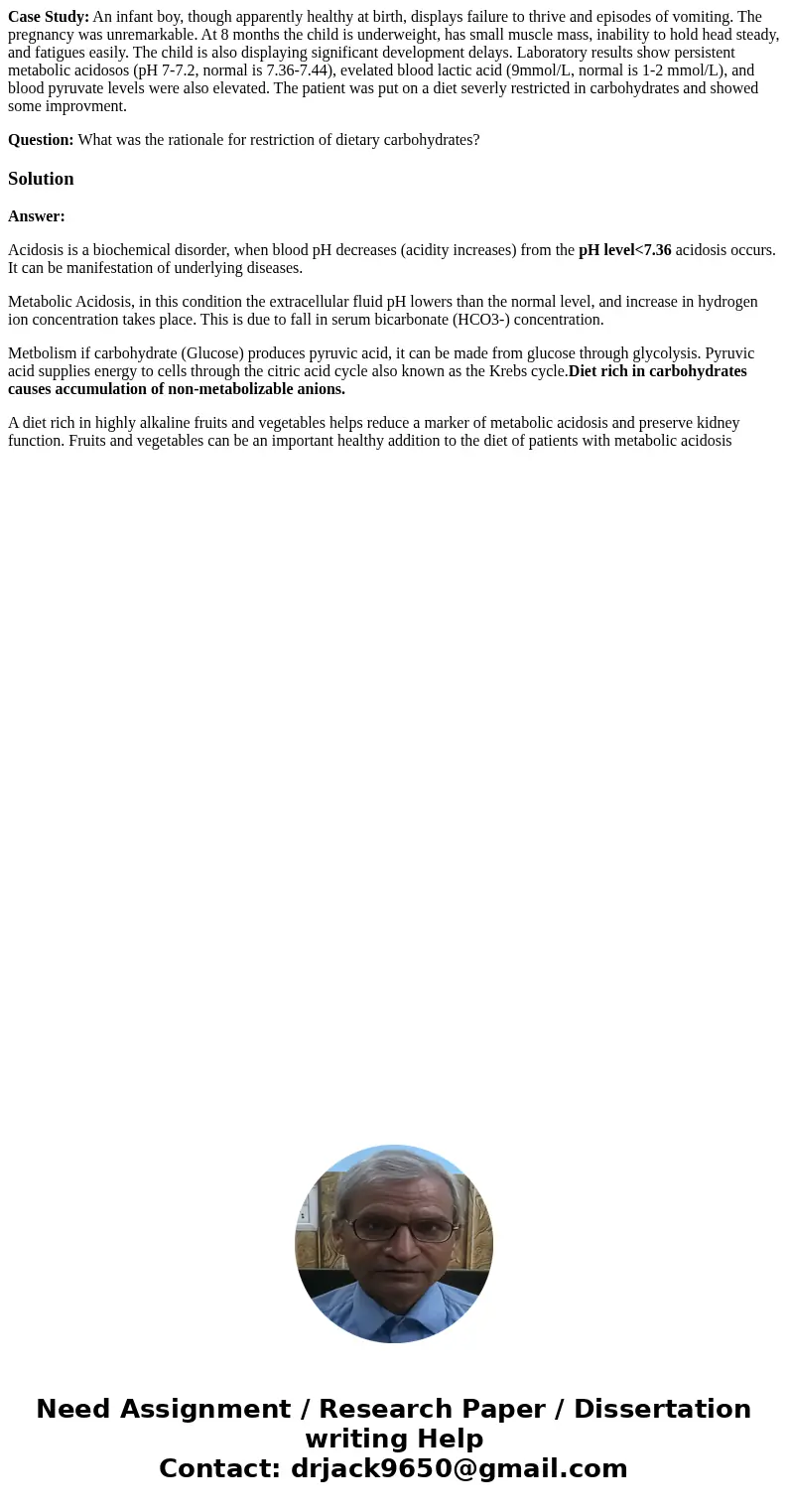Case Study An infant boy though apparently healthy at birth
Case Study: An infant boy, though apparently healthy at birth, displays failure to thrive and episodes of vomiting. The pregnancy was unremarkable. At 8 months the child is underweight, has small muscle mass, inability to hold head steady, and fatigues easily. The child is also displaying significant development delays. Laboratory results show persistent metabolic acidosos (pH 7-7.2, normal is 7.36-7.44), evelated blood lactic acid (9mmol/L, normal is 1-2 mmol/L), and blood pyruvate levels were also elevated. The patient was put on a diet severly restricted in carbohydrates and showed some improvment.
Question: What was the rationale for restriction of dietary carbohydrates?
Solution
Answer:
Acidosis is a biochemical disorder, when blood pH decreases (acidity increases) from the pH level<7.36 acidosis occurs. It can be manifestation of underlying diseases.
Metabolic Acidosis, in this condition the extracellular fluid pH lowers than the normal level, and increase in hydrogen ion concentration takes place. This is due to fall in serum bicarbonate (HCO3-) concentration.
Metbolism if carbohydrate (Glucose) produces pyruvic acid, it can be made from glucose through glycolysis. Pyruvic acid supplies energy to cells through the citric acid cycle also known as the Krebs cycle.Diet rich in carbohydrates causes accumulation of non-metabolizable anions.
A diet rich in highly alkaline fruits and vegetables helps reduce a marker of metabolic acidosis and preserve kidney function. Fruits and vegetables can be an important healthy addition to the diet of patients with metabolic acidosis

 Homework Sourse
Homework Sourse